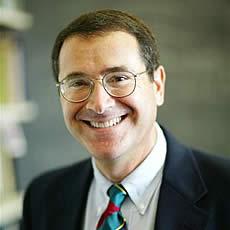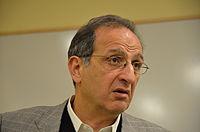Men over 40 with faulty BRCA2 gene should be tested annually for prostate cancer
Scientists at The Institute of Cancer Research, London, are calling for annual blood tests to detect aggressive prostate cancer in men who have a fault in the BRCA2 gene. After researching the effectiveness of the test, Ros Eeles, who led the study, said: “Our research shows very clearly that men with the BRCA2 gene fault are at increased risk of aggressive prostate cancer and that regular PSA testing could go some way to improving early diagnosis and treatment.”
The PSA test is done using a small amount of blood to detect raised levels of prostate specific antigen (PSA). Yet, despite its relatively low cost and ease of administering, it is not offered for routine screening in many countries, including the UK. This is because a significant proportion of those testing positive have no disease (a false-positive result), slow-growing cancer that doesn’t need treatment, or positive results caused by a relatively benign condition, such as a urinary tract infection.
Detecting prostate cancer early is important and saves lives. But many of those identified by the PSA test as having elevated levels of the antigen could potentially undergo painful treatment with significant life-altering side effects, which were unnecessary. Also, up to 15% of men with prostate cancer have normal PSA levels (a false-negative result), meaning that many men would receive unwarranted reassurance from this test.
Guidelines in most countries, therefore, note that the possible benefits of testing are outweighed by the potential harms of over-diagnosis and over-treatment, making it unsuitable for screening everyone.
Faulty BRCA2 gene
Men with faults in their BRCA2 gene are, however, five times more likely to be diagnosed with prostate cancer and at a younger age. More worryingly, this high-risk group is also twice as likely to have a more serious, potentially life-threatening, form of prostate cancer.
Faults in the BRCA2 gene are more commonly linked to breast cancer, and this is where it gets its name (BReast CAncer). The gene itself was originally identified by looking at families and groups that showed higher than normal levels of breast cancer. This includes people of Icelandic, Scottish, Northern Irish, Quebecois and Ashkenazi Jewish origin, where specific faults in the BRCA2 gene are seen.
In both these families and groups, researchers also identified higher than normal levels of male breast cancer (yes, men can also get breast cancer), prostate, pancreatic and other cancers.
Read more: Why men don't need to be screened for breast cancer, but should still do regular checks
I became involved in BRCA2 research, shortly after its discovery in 1994. The discovery of this gene was a major advance in the fight against cancer and we came up with a wide range of possible ways that faults in the gene could lead to cancer.
Painstaking research over many years has shown that the gene plays a vital role in repairing breaks in our DNA. When this process does not occur properly, because of problems in the gene, the result is a build up of mutations. This can then lead to cancer-causing changes in the rest of the DNA, and this is why screening for early signs, including the PSA test, becomes more important.
Who should be seeking advice on genetic testing?
While certain groups have a greater chance of carrying particular faults in their DNA, any family could be passing down dangerous changes in BRCA2 through the generations. So if several members of your family have had breast cancer, prostate cancer and particularly if there are any incidences of male breast cancer, it may be worth speaking to your doctor. You may then be sent to have your DNA tested for faults in the gene.
In people with an identified risk, there is a range of options available. Not all changes in BRCA2 carry the same risk and carriers must weigh up the risks against the invasiveness of any preventative measures. In some cases, increased vigilance and more regular checks, such as the PSA test, may be enough.
More extreme precautionary measures are also sometimes taken. For example, actress Angelina Jolie opted to have a double mastectomy and removal of her ovaries and fallopian tubes after finding that a fault in her BRCA1 gene (another major gene involved in cancers) put her at a greater risk of breast and ovarian cancer. Her mother had breast cancer and both her mother and grandmother died from ovarian cancer.
Read more: Angelina Jolie Pitt's surgery is just one option for women at risk of cancer
The PSA test is not reliable enough to be used as a general screening method for prostate cancer. But in men with BRCA2 faults, it does appear to play a vital role and calls for its annual use for these men need to be carefully considered. There is also a need to identify those people carrying this faulty gene. At the same time, finding better ways of screening for prostate cancer remains the goal of many researchers.
Michael Porter, Lecturer in Molecular Genetics, University of Central Lancashire
This article is republished from The Conversation under a Creative Commons license. Read the original article.
















